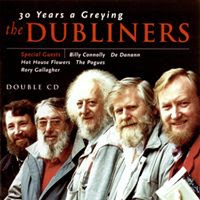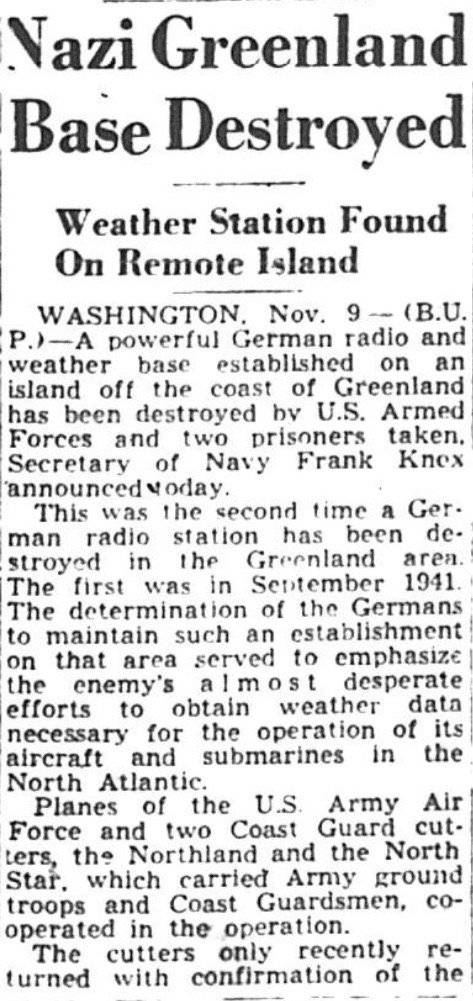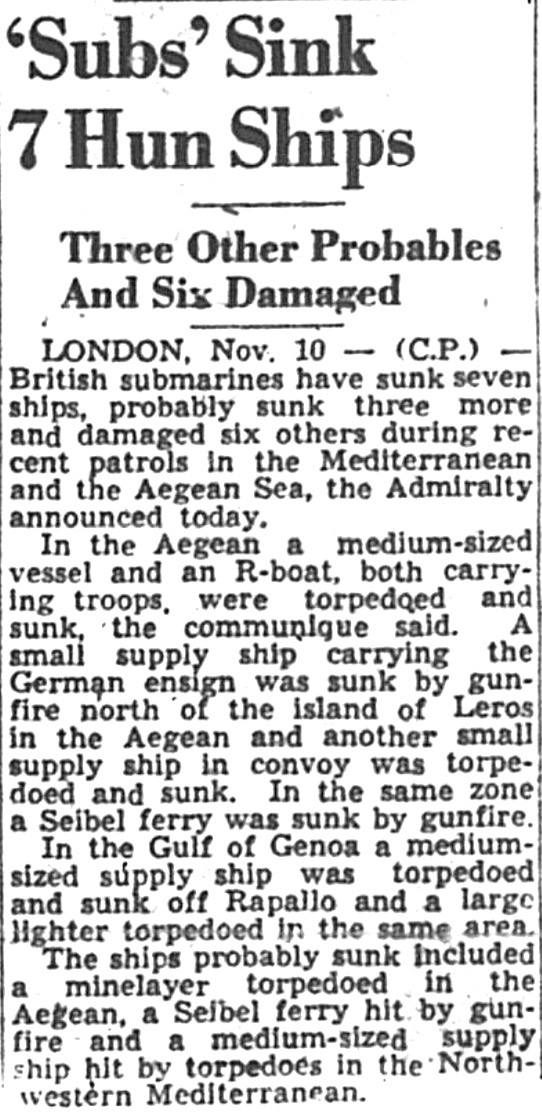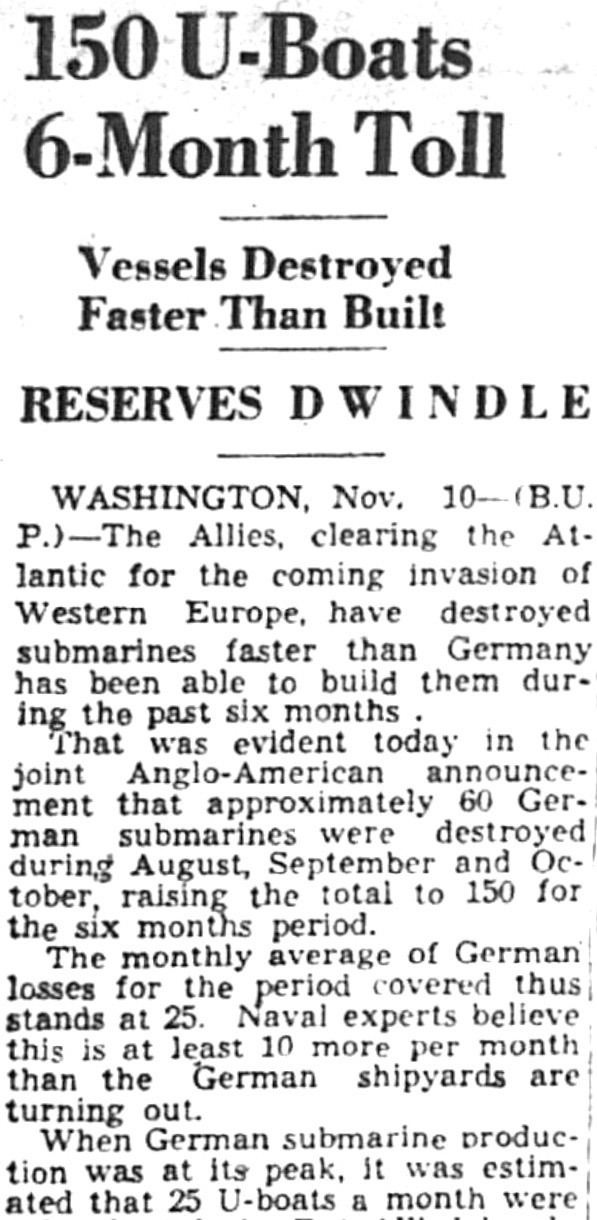That First Christmas in Germany
A. Robert Prouse, in the book
"Ticket to Hell via Dieppe", writes about his experiences as a prisoner of war in Germany after his capture on the beaches of Dieppe, France. His memoirs are honest and enlightening, and I share below a few excerpts in order to provide a glimpse of what life was sometimes like inside a prison camp, in this case Stalag IXC on the outskirts of Molsdorf.
We Were Not Completely Forgotten
That first Christmas in Germany was a lonely one.
It started me thinking too much of loved ones and home.
I began to formulate thoughts of escape.
We received Christmas crackers from an organization
in England and were extremely surprised when
'popping' them to find map sections falling out.
Each map section showed various parts of Germany plus
adjoining countries, such as Belgium, Holland and France.
They were on very thin rice paper and were
an invaluable asset for would-be escapees.
We silently thanked the powers who had devised
this method of delivery, at the same time wondering
how it had been missed by German Intelligence.
The maps gave us all feelings of hope and elation
(the same feelings we got when hearing some 'good' propaganda,
even though it often turned out to be false), and helped overcome
some of the recurring feelings of depression, loneliness, anxiety
and fear of what the future held. It gave us a lift to know
that we were not 'lost' and completely forgotten.
Page 41
* * * * *
When the Parcels Arrived, It was Heaven
After our act of defiance, the camp settled down
to a normal routine. We were up each day at 6:00 a.m.,
and until 'lights out' at 10:00 p.m. the day was organized
around a boring schedule punctuated by mealtimes
and welcome cigarette breaks.
Photo Credit - The Montreal Star, Nov. 9, 1943
The German food was insufficient and tasteless.
It consisted of a steady diet of rotting potatoes, cabbage,
sauerkraut and black bread. This was the daily fare.
Once, we received a type of soup that was 'blood-red'
in colour and had the consistency of blood.
I managed two spoonfuls and shuddered as
the sticky mess stuck to the inside of my mouth.
It was hard to swallow and went down very slowly,
leaving a nauseating effect in the throat and stomach.
Photo Credit - "Ticket to Hell via Dieppe" Page 40
Once a week each man also received a very small
portion of ersatz (substitute or artificial) jam and sugar.
With very careful rationing, we were able to make this last a day.
The daily coffee was also ersatz, usually made from acorns.
Without the Red Cross parcels, we would have gradually starved.
These parcels were supposed to arrive once a week but
often they were not issued. When they did not appear,
the Germans would claim that they had been lost
in air raids by the Allies but, on several occasions, 'Crazy-legs',
the Commandant, was seen eating 'bully-beef' from a British tin.
When the parcels did arrive, it was heaven.
These and the mail, plus the thought of escape,
were the things that kept us going from day to day.
Pages 43 - 44
* * * * *
Photo Credit - "Ticket to Hell" Intro to Chapter 4
A. Robert Prouse attempted an escape from Stalag IXC by slipping into line with a departing work company. The ruse worked to get through the gates and on down the road for a ways. Then "sirens began to wail, announcing our escape."
The Barking of the Dogs
We jumped a fence, left the road
to take to the fields and finally made it
to scrub brush without hearing a shot fired.
Quickly, we forded a small stream and then
climbed a steep railway embankment before
stopping to catch our breath and look back.
The sirens were still screaming
and we could see about fifteen or twenty guards
running through the fields toward the embankment.
As near as we could tell, about three or four of them
were being jerked forward by police dogs.
We took off again, sliding and slipping
down the far side of the embankment.
After running a short way through an open field,
we entered the dense evergreen forest
which had been our immediate destination.
For the next fifteen minutes we never stopped,
proceeding deeper and deeper into the wood
at as fast a pace as we could manage.
Finally, we dropped in sheer exhaustion
and tried to catch our breath. Then we slowly crawled
under the lowest and thickest branches we could find,
each man selecting his own tree for concealment.
It was not too long before
we heard the barking of the dogs.
Fortunately they were not blood hounds
and were only trained to drop a man on sight.
Next we heard intermittent rifle shots as
the guards tried to flush us out of hiding.
I thought for a moment that they had spotted
one of the others but lay motionless anyway.
Then I realized that this was their method
of trying to have us break cover.
It seemed like a lifetime laying there.
I must have died a thousand deaths
as my imagination worked overtime.
All of a sudden I heard
the approach of the guards and dogs.
I ventured a peek and could see jack boots
and dogs' paws no more than six feet from me.
I held my breath and tried desperately to control
the tremor that ran through my body, feeling certain that
the guard would hear the furious pounding of my heart.
Finally, the feet moved off,
gradually receding into the distance.
Others approached and passed but
no one came that close.
It had been 6:00 a.m.
when we first walked through the gates and
we later estimated that it had taken us about
an hour to reach our place of concealment.
It wasn't until around two in the afternoon
that we slowly came out of our hiding place,
looking at each other and grinning with relief
and the first feeling of freedom.
Pages 58 - 59
Mr. Prouse and the small band of escapees made it as far as the German and Czech border before being recaptured. But, if at first you don't succeed...
* * * * *
Before Prouse and others could effectively liberate themselves from captivity, advancing Allied and retreating German forces created a grip that many weakened POWs would not survive. Prouse and many other POWs, however did survive a lengthy, crippling, deadly forced march from one POW camp to another - in an attempt to outpace approaching Allied Forces - and (barely) managed to fall into the lap of liberating troops.
Not a Man Moved. Freedom was Too Near
In the early hours of dawn,
one of the guards told us that the front
was only eight kilometres away.
We could easily believe this,
not only from the air action
but from the sound of heavy shell fire
gradually getting closer and closer.
It was a scary feeling,
being in the middle of the battle,
but at the same time it was exciting
and exhilarating to think of
impending freedom.
There was a sudden commotion
in the Russian enclosure next to ours.
As we watched helplessly,
the Jerry guards rushed in with fixed bayonets
and started to prod the prisoners toward the gates
in an obvious attempt to evacuate the camp
and keep them out of the hands
of the approaching Allies.
There was a lot of screaming
and shouting as the Russians tried
to hang back and elude the prodding guards.
Finally, shooting broke out
and the camp was quickly emptied
except for the dead and wounded
laying in the courtyard.
Our turn came next.
A large group of Germans entered our enclosure.
They commenced the same procedure
of prodding and shouting at us to move out.
Not a man moved.
The whole camp was determined
that this was it: freedom was too near.
The officer in charge of the guards screamed
that either we moved out or we would be shot.
The prisoners held their ground
and glared in defiance.
For a moment there was an ominous silence,
suddenly broken by the unmistakable sound
of approaching tanks.
We knew this was our salvation
and let out a thunderous cheer.
The Jerrys took to their heels,
rushing out of the main gate
and disappearing in full flight.
At 5:05 p.m. on April 11,
the tanks of the American Third Army arrived at the gates of the camp.
We rushed out to greet them and they showered us with cigarettes
and field rations... Before they left, we told them the direction
that the fleeing guards had taken
and asked them to give them hell.
Pages 147-148
Photo Credit - Ticket to Hell via Dieppe.
Editor's final note. The book is highly recommended. I purchased my copy for ten dollars at Attic Books, a used-book store in London, Ontario.
Please link to
Passages: "Ticket to Hell via Dieppe" by A. Robert Prouse (1).
Unattributed Photos GH






















































